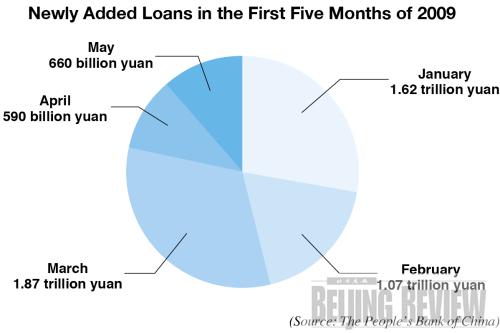| 
Numbers of the Week
208 million
The Central Government has appropriated 208 million yuan ($30 million) since May to eight provinces and autonomous regions hit by severe natural disasters.
3 billion tons
The largest iron ore mine in Asia was discovered on June 24 in Benxi of northeastern Liaoning Province with a proved reserve of more than 3 billion tons.
TO THE POINT: Trade disputes between China, the United States and the EU heated up as summer started, but their overall trade relations will remain intact. The latter two accused China of restricting raw material exports, while China accused the United States of banning imports of Chinese poultry products. The central bank warned of surging credit card defaults as a result of the economic slowdown. China posted a central deficit of 180 billion yuan ($26.3 billion) in 2008, roughly the same as in 2007. Home appliance retailer Gome shrugged off a stock scandal involving its former chairman and moved on with cash injection from a U.S. private equity firm.
By LIU YUNYUN
Export Restrictions
The Ministry of Commerce downplayed accusations by major developed countries that China was restricting exports of certain products and reiterated its policy was in line with the nation's commitment to the World Trade Organization (WTO).
The United States and the EU filed complaints with the WTO on June 23, accusing Beijing of restricting exports of its steel, chemicals and other raw materials. China is a major global supplier of these products.
The Ministry of Commerce told Xinhua News Agency that the restrictions on certain product exports were meant to protect the environment and the country's natural resources. The ministry argued that the policy complied with WTO regulations.
The ministry has received requests from the United States and EU for meetings to discuss their complaint. It said it would properly handle such negotiations according to the WTO's dispute settlement mechanism.
Zhou Shijian, an expert at the China Society for WTO Studies, called the accusation by the United States and the EU "groundless" and said countries around the world, including China, are using such policies to protect their resources. The United States and the EU covet China's resources and want to buy them at cheap prices, he added.
Zhou said although the WTO emphasizes no restrictions on imports in the hope of promoting an open market, it has no specific export guidelines, such as which products a country should export or how much of a product it should export. Moreover, there is no article in WTO regulations that says a country's resources should be totally available for export, he said.
It was the first complaint against China that the United States filed with the WTO since President Barack Obama took office earlier this year.
U.S. Poultry Ban
On the same day China received the joint U.S.-EU complaint about restrictions on its raw material exports, the Ministry of Commerce requested that the WTO set up a team to investigate the U.S. ban on imports of Chinese poultry products.
Analysts said they suspected the Chinese request was a counterstrike against the complaint filed by the United States and the EU.
Yao Jian, spokesman for the Ministry of Commerce, said on June 24 that China's poultry products could not be exported to the United States because of a U.S. ban. He said the ban violated certain WTO rules.
Domestic poultry exporters have strongly opposed the U.S. ban, arguing that their legitimate rights have been jeopardized.
The United States and China banned imports of each other's poultry in 2004 as a result of the bird flu outbreak. China lifted its ban a few months later, but the United States refused to follow suit.
Addressing the two abovementioned WTO charges, Mei Xinyu, an associate researcher at a Ministry of Commerce's think tank, said citizens of neither country should be overly concerned that the disputes might dampen normal economic and trade activity among China, the United States and the EU, because they are sensible entities and would not hurt trade relations at large.
Credit Card Defaults
The prolonged global credit crunch has taken its toll on Chinese consumers' solvency, as credit card defaults surged in the first quarter.
According to a central bank statement, late credit card payments that are overdue more than six months rose 133.1 percent year on year in the first quarter. According to international practice, overdue payments that are more than 180 days late should be treated as bad debts.
On the one hand, the cardholders' repayment abilities have deteriorated along with the financial crisis. Meanwhile, in the past few years, banks have increased the number of new credit cards issued and have attached little significance to debtors' ability to pay off their charges. As a result, the banks have accumulated high numbers of risky clients.
| 